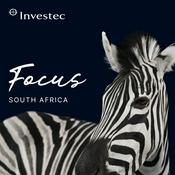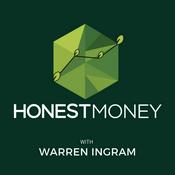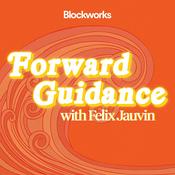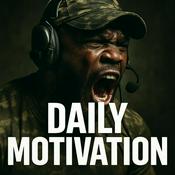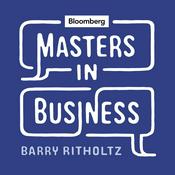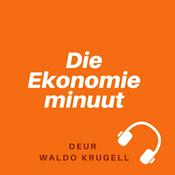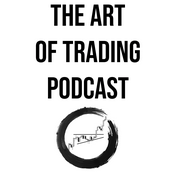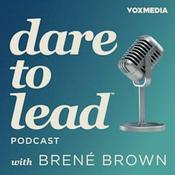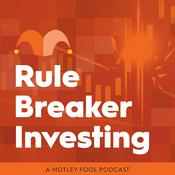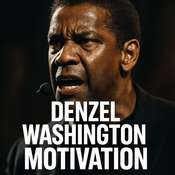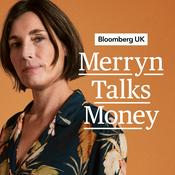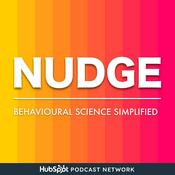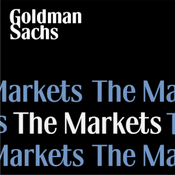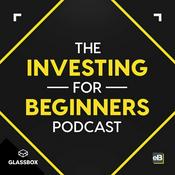39 episodes
- Transcript and all links: dialectic.fm/mmm
Molly Mielke McCarthy (Website, X, Substack) is an investor, writer, and founder of Moth Fund, an early-stage fund focused on backing "moths": quirky, quiet, mission-driven founders who are often underpriced by traditional venture capital.
Molly's career has been a dance between "peopling" and making. She's held design, product, and editorial roles at Figma, Notion, Stripe Press, and The Browser Company, and explored film, photography, and the arts before finding her way to venture, where she started as a scout for Sequoia Capital. Today, she invests in people at the earliest stages. She also writes beautifully about agency, vocation, discernment, and what it means to live an authentic life.
We begin with how Molly identifies exceptional people—her "three-month rule," spikiness, and why competence is harder to find than storytelling. We discuss the bat signal she sends to attract founders who feel misunderstood, and one of her central distinctions: agency versus ambition, or why playing your own game matters more than playing games others have created. We go deep on commerciality and why it is so essential, and talk about how Molly's work as an investor often looks most like coaching. We also explore legibility versus illegibility: the freedom in not being easily understood, and when it's worth becoming legible. Molly's one of my favorite thinkers on self-knowing, and we talk about how she's navigated uncertainty toward authentically shaping her life and work into a form that fits her.
Molly embodies rare combinations: people-centric yet fiercely individual, intuitive yet pragmatic, truth-seeking yet full of care. I hope this conversation inspires you to yield to your own calling, and to be patient enough to see what's true about yourself and the people around you.
---
Dialectic is presented by Notion. Notion is an AI-powered connected workspace where teams build their best work. Notion is also where I compile research for episodes and the home of my new site where you can find all links and transcripts. My “What are You Building This Year feature with Notion on Instagram.
Timestamps
0:00: Opening Highlights
1:29: Intro to Molly
3:36: Thanks to Notion
5:14: Start: People, Spikeyness, and Discernment
21:36: Agency and Ambition
34:45: Commerciality
49:19: Investing, Feedback Loops, and Creating a Bat Signal
59:46: Coaching and Working with Young People
1:06:54: Self-Knowledge, Uncertainty, "Should," Others' Acceptance, Motivations
1:16:38: Illegibility & Legibility, Principles, Authentic Service
1:29:28: Friends, Seeing in the Third Person, Feminity in a Masculine World, Love
1:42:07: Grab Bag: Art, Catholicism, Gratitude, Beauty
1:58:58: Thanks Again to Notion - All linked references & transcript available at dialectic.fm/trevor-mcfedries.
Trevor McFedries (X, Instagram, Wikipedia) is a musician, technologist, and entrepreneur. Today he is the founder of Runner and 1/2 of electronic dance duo SoFTT. Previously, Trevor was co-founder and CEO of Brud, the company behind Lil Miquela that was acquired by Dapper Labs; Founder of FWB (Friends with Benefits); early artist in residence at Spotify; and a touring DJ who performed as DJ Skeet Skeet, was part of the rap group Shwayze, and produced for a range of artists.
Trevor’s work emerges from a tension he’s lived with throughout his career: the gap between who creates cultural value and who captures it. Growing up poor in Iowa and entering the dying music industry in the late 2000s, he witnessed firsthand how the instruments that capture value rarely benefit the creative people who generate that value. This has run across his entrepreneurial work, from building virtual pop stars to a range of crypto projects that hope to give creative people more upside.
Trevor bridges culture and technology, art and capital, and high and low. I’ve met few people who are as consistently ahead of culture. His perspective challenges both the art world’s disdain for commerce and Silicon Valley’s shallow engagement with culture, arguing instead for creative people to play the game on the field and build the instruments that will make them rich. Today, he’s focused on how that may end up being as much about predicting what’s next with stakes as it is actually making things. We also talk about authenticity and honesty, why he continues to spend time in crypto despite it being low status, why speculation is rational and selling out is punk, how power comes from consensus, his keen nose for weird—especially on the internet, briefly working with Kanye West, and his forever optimistic curiosity.
---
Dialectic is presented by Notion. Notion is an AI-powered connected workspace where teams build their best work. Notion is also where I compile research for episodes and the home of my new site where you can find all links and transcripts. You can read more about why Notion embodies Dialectic’s values and our partnership announcement here. My “What are You Building This Year feature with Notion on Instagram. - Full episode transcript and all linked references available at https://dialectic.fm/c-thi-nguyen.
C. Thi Nguyen (Website, Philpeople.org, X) is a professor of philosophy at the University of Utah focused on values, games, agency, art, aesthetics, and data. His new book, The Score: How to Stop Playing Somebody Else's Game is out now.
Thi is also the author of Games: Agency as Art, in which he explores how game designers work in the medium of agency, but sculpting a players abilities, goals, and obstacles to create "harmonious action." I first learned about Thi's work via his interview with Ezra Klein in 2022, which is one of my all-time favorite podcast episodes. In it, he discusses Agency as Art, How Twitter Gamifies Communication, Why Q-Anon is game-like, and more.
The Score is a marriage of his work on games and on data and metrics. He explores how scoring systems in games allow for playfulness and agentic exploration of our values, while scoring systems in real life produce what he calls value capture. In an effort to make the world more quantified, comprehensible, and trustless, metrics are flattening our values and sapping the meaning out of our lives. One way he describes his work is that James C. Scott's Seeing Like a State also applies to the human soul.
In this conversation, I aimed to cover the most compelling ideas in the book in two parts. First, we explore the local side: personal agency and values, attention and the difference between recognition and perception, process vs. outcome, and why playfulness and openness allow us to have richer lives. He also shares how games are a compelling template for this kind of exploration.
Second, we talk about the societal level: what we miss in a world of values dominated by what is easily measurable, how we can scale trust and enjoy the benefits of collaboration, science, and technology while not delegating our understanding to the wrong people, and why objectivity and truth are not always the same thing. Thi makes the case that technology is value-laden, not value-neutral, and that we must be more vigilant and nuanced in our approach to the ethical decisions that exist everywhere.
I hope this conversation is a prompt for you and I to think more deeply about what we truly care about, to "move lightly" between agentic and value-laden worlds, and bring a perceptive playfulness to our lives. Remember, we are all grasshoppers in disguise. If you enjoy the episode, please support Thi's work and check out The Score.
-
Dialectic is presented by <... - Full transcript and all links: https://dialectic.fm/brie-wolfson
Brie Wolfson (X) is a marketer, writer, storyteller, and curator. She’s Chief Marketing Officer of Positive Sum & Colossus, where she works closely with CEO Patrick O’Shaughnessy across investing and media and spearheaded Colossus Review, their new print publication known for superb long form profiles.
Brie also recently joined AI-programming behemoth Cursor as Head of Employee Experience and wrote about the company’s culture. She has worked with craft-oriented software companies throughout her career, including Stripe—where she helped launch Stripe Press and the company’s planning function, among other things—and Figma, where she worked on Education. In her words, she is drawn to companies where the reality is even more impressive than the reputation, and she has publicly and privately worked with a number of the most impressive leaders in Silicon Valley on marketing, culture, and storytelling.
We cover a broad range of Brie’s expertise, including craft, marketing, organizational culture, unlikely career paths, and taste, editing, and writing. This includes how AI is causing companies to become even more oriented around the empowered individual contributor and who the best of them, including company leaders, are focused on an attunement to details that she likens to “finger feel.” We also talk about why she believes marketing should be a kind of truth-telling, closing the gap between reality and perception. She also reflects on the common cultural thread of great companies: a deep-seated desire to be a great company, not just create great products. She talks at length about everything she’s learned from amplifying special people and how she’s navigated the tension in her own desires for fun and breadth and ambition toward greatness.
I hope this conversation inspires you to raise your standards, get to the ground level, and settle into a life of deep attention that produces quality, usefulness, and joy.
---
Dialectic is presented by Notion. Notion is an AI-powered connected workspace where teams build their best work. Notion is also where I compile research for episodes and the home of my new site where you can find all links and transcripts. You can read more about why Notion embodies Dialectic’s values and our partnership announcement here. You can find the essay from Notion CEO Ivan Zhao mentioned at the end of the episode here.
Ti... - All links and transcript at dialectic.fm/ryo-lu
Ryo Lu (Website, X) is the head of Design at Cursor. Prior, he was a designer at Notion, Stripe, and Asana, working on some of the most influential software tools of the last decade. He is now focused on building the next generation of tools for making software.
Our conversation is an extensive exploration of Ryo's design philosophy, which is anchored in his recurring mantra: "it's all the same thing." He sees the world as fundamentally modular, where simple rules and patterns endlessly recombine to create emergent complexity. For Ryo, design is consciously participating in this process: seeing through the surface to understand the underlying structure and rearranging it into new forms. This means constantly moving between simplicity and complexity, chaos and order, bare material and highest levels of abstraction.
We discuss how his process has evolved with AI. In the past, designing in tools like Figma felt like painting; now, working in Cursor feels like sculpting clay or finding David in the marble. So much of his philosophy is about getting closer to the material—in this case, code—and letting it provide feedback. There is no better example of this than his personal project, ryOS, a nearly full-on operating system he built entirely in Cursor. It is soulful, deeply personalized, and the opposite of "AI slop."
This is a philosophical discussion about designing things that feel "true" or even "inevitable," but it is also a practical one. We talk about balancing agility and quality, allowing for "slack" in systems, and how to create soulful things with AI. Ryo is a profound thinker, but he is also a prolific doer, and it is this marriage that makes him so effective. I hope you are inspired to get closer to your own material, to be more flexible and dynamic, and to expand the boundaries of what you can personally create.
---
Dialectic is now presented by Notion. I am now focused on Dialectic full-time, thanks to their support. You can read more about why Notion embodies Dialectic's values and our partnership announcement here.
Notion is an AI-powered connected workspace where teams build their best work. Notion is also where I compile research for episodes and the home of my new site where you can find all links and transcripts.
Timestamps
0:00: Notion Announcement & Dialectic's Future
4:45: Intro
7:46: "It's all the same thing!"
17:25: Technical and Conceptual Readiness and How AI Helps us Deal with Complexity
20:58: Designing for true-ness and inevitability
27:28: Practicality and False-Compromise
33:45: Working with Material and Different Ways of Thinking
44:06: ryOS and Designing for the Full Spectrum of Users
59:39: Allowing for Slack and Some Amount of Chaos in Design
1:04:55: What is Cursor, Conceptually?
1:10:33: How Using Cursor Evolves
1:15:50: Designing for Power While Not Alienating Users
1:19:59: How Ryo Designs at Cursor: Abstractions, Writing, Prototyping
1:23:57: Process, Creating Soulful Things with AI, Refining Taste
1:31:08: Balancing Agil...
More Business podcasts
Trending Business podcasts
About Dialectic
Conversational portraits of original people, across technology, media, business, and creativity. By Jackson Dahl.
Podcast websiteListen to Dialectic, Investec Focus Radio SA and many other podcasts from around the world with the radio.net app
Get the free radio.net app
- Stations and podcasts to bookmark
- Stream via Wi-Fi or Bluetooth
- Supports Carplay & Android Auto
- Many other app features
Get the free radio.net app
- Stations and podcasts to bookmark
- Stream via Wi-Fi or Bluetooth
- Supports Carplay & Android Auto
- Many other app features

Dialectic
Scan code,
download the app,
start listening.
download the app,
start listening.

